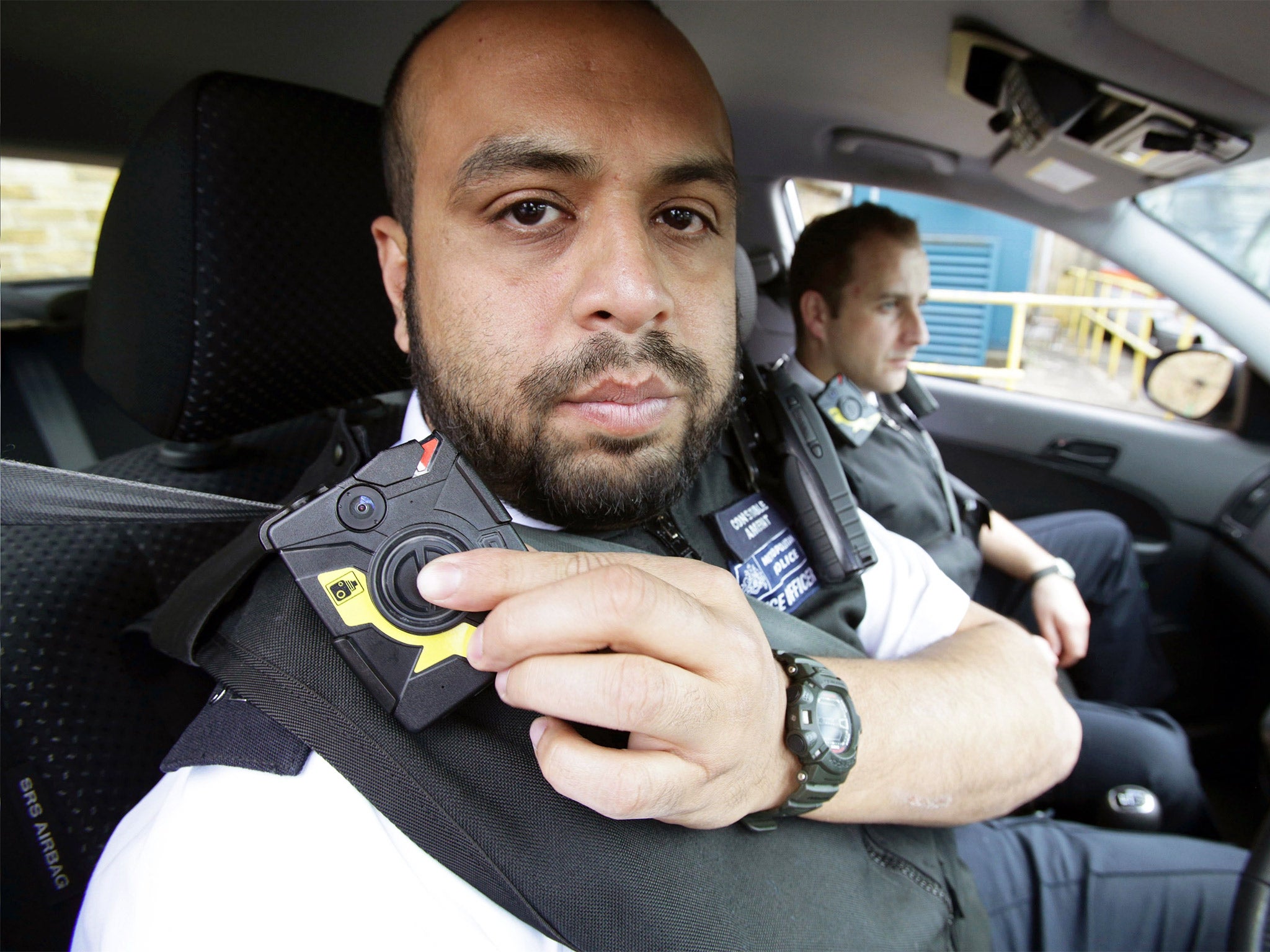Police body cameras 'too big to be worn by undercover officers'
Metropolitan Police Commissioner says Taser-brand devices are not designed to be hidden on covert operations

A police marksman who shot a man dead during an undercover operation was unable to wear a body camera because the devices are too big to be hidden effectively.
The Metropolitan Police Commissioner Sir Bernard Hogan-Howe said the Taser-brand devices being tested by the force are not designed to be hidden, and cannot be used by armed officers on covert operations.
Scotland Yard is currently testing 1,500 cameras, and next year will become the first force in the world to give every officer one of the devices, with 22,000 being rolled out over nine months.
Sir Bernard said: “What has been a challenge for us is finding the right kit for officers who are covert. You don’t want someone to be recognised as a police officer who is covertly on surveillance and armed by someone seeing the camera. The camera we have is generally designed to be very clearly seen.
“So that’s something that we’re still working on, and it could certainly account for what happened last week.”
Jermaine Baker, 28, from Tottenham in north London, died from a single gunshot wound during a police operation to foil an alleged prison van break near Wood Green Crown Court in north London on 11 December.
The Independent Police Complaints Commission has launched a homicide investigation into the death, which could lead to murder or manslaughter charges. The marksman who fired the fatal shot has been taken off duty, but has not yet been suspended.
A spokeswoman for Scotland Yard said: “The firearms officer is not at work and has been relieved of all operational duties, but is not yet technically suspended.”
The force refused to say why he has not yet been suspended, insisting the reason is “a private matter between the officer and his employer”, but it is understood he will be.
The two main types of body-worn camera are one that is about the size of a small mobile phone, or a shoulder-mounted model that is around the size of a large marker pen.
Sir Bernard added: “There will always be a compromise if you want a smaller camera. The amount of stuff it will see ... and also to make sure you can keep it covert, particularly if you’ve got a firearm. If there’s wires, where are you going to put them? So there’s all that to work through and we haven’t resolved that yet.”
Last year Scotland Yard confirmed it would trial body-worn cameras after the inquest into the death of Mark Duggan, who was shot by police in Tottenham, north London, in 2011.
Questioned about the time delay in finding the right kit for undercover marksmen, the force chief said: “What I’m not going to do is equip surveillance officers with kit which allows them to be identified, particularly if you’ve got firearms officers who I assume are going to be facing people with guns.
“We’re going to get it right; we’re not going to do it quickly. If we can do it quickly we will of course, but we’re going to do it right.”
Video: Police chief backs body cams
A report by the Mayor’s Office for Policing and Crime and the College of Policing earlier this year concluded that the cameras had benefits for the police as well as improving their accountability.
During a large-scale trial in London the cameras were found to help collect evidence and offered officers greater confidence about being challenged about their conduct. It also found that there was no reduction in the quality of policing.
In a survey conducted for the report, 92 per cent of the public were found to believe the cameras would improve the accountability of police.
The Mayor of London, Boris Johnson, described the introduction of body cameras as “a huge step forward in bringing London’s police force into the 21st century”.
